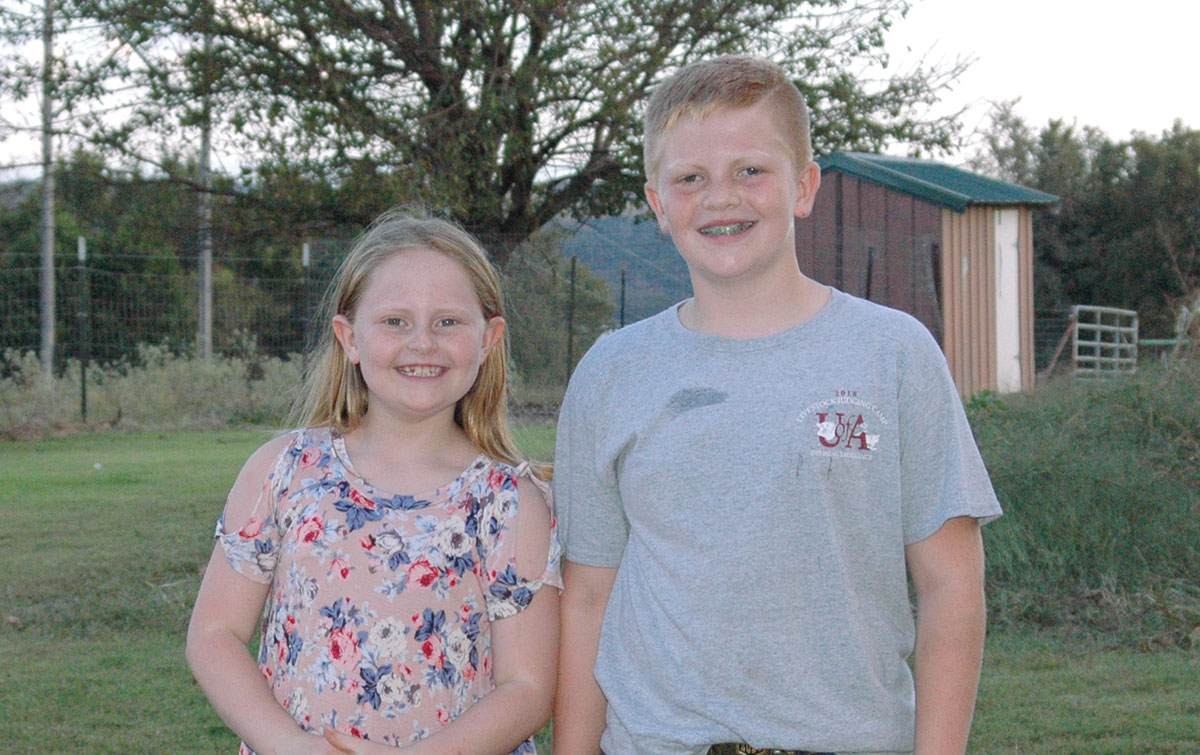 The actions of a kind uncle many years ago set in motion what has become a lifelong pursuit for David Kidd of Lincoln, Ark.
The actions of a kind uncle many years ago set in motion what has become a lifelong pursuit for David Kidd of Lincoln, Ark.
“My first animal was a Jersey heifer my uncle gave me,” reminisced Kidd. “I showed her at the fair and then sold her when she freshened.”
As a young man he spent many hours driving down the dusty roads of Arkansas and Oklahoma trading cattle. “My Dad always let me have a share of whatever he was doing with cattle, and we raised chickens, too," said Kidd. David became a successful auctioneer and cattle buyer, and only five years ago retired from full-time livestock auctioneering. At an age when many men are looking for a front porch rocking chair, David Kidd is busy running a full time farming operation, supervising four hired hands, intensely focused on putting profitable gains on lightweight local sale barn cattle and reselling them at 800 to 1,000 pounds.
The DK ranch is well equipped with machinery and staff so that the cattle make the weaning transition with the least amount of stress and sickness. David buys cattle every week and starts them on an aggressive health program, which keeps the death loss at below 2 percent. The cattle remain in pens for the first week where they are vaccinated, de-wormed, and started on feed.
With feed costs rising at a phenomenal rate, David has been able to maintain his edge in a volatile cattle market by mixing rations on the ranch with a least-cost formula that does not sacrifice feed quality. A 700 lb. Bermuda grass hay bale is loaded into a vertical mixer which grinds the hay and mixes in cottonseed hulls, soy hull pellets, corn gluten, antibiotics and corn syrup. The feed is then transferred by auger wagon to the concrete troughs in the holding pens.
For three weeks the cattle remain at the ranch, and then are moved to rented pastures where the feeding program continues.
"All our cattle are fed 6 lbs. per head per day," David commented, “even on Sundays.”
He knows farmers need an eight-day week to get everything done, and is thankful for the work ethic he learned as a young man.
Since there are fresh cattle on the ranch every week, David knows he will be at the working pens every Wednesday and Saturday. The backgrounding program continues with castration, dehorning and branding. Because David’s pastures are spread out over Washington County and have contiguous fences with other herds, all of David’s cattle are hot branded.
Recently cattle theft has been in the news in southern Washington County, and to this David commented, “They better not let me catch them at it!”
Still, David said he appreciates the fact that neighbors call him and let him know his branded cattle have strayed. He believes branding is just another way of protecting profits, which helps make that eight-day work week a little more worthwhile.







